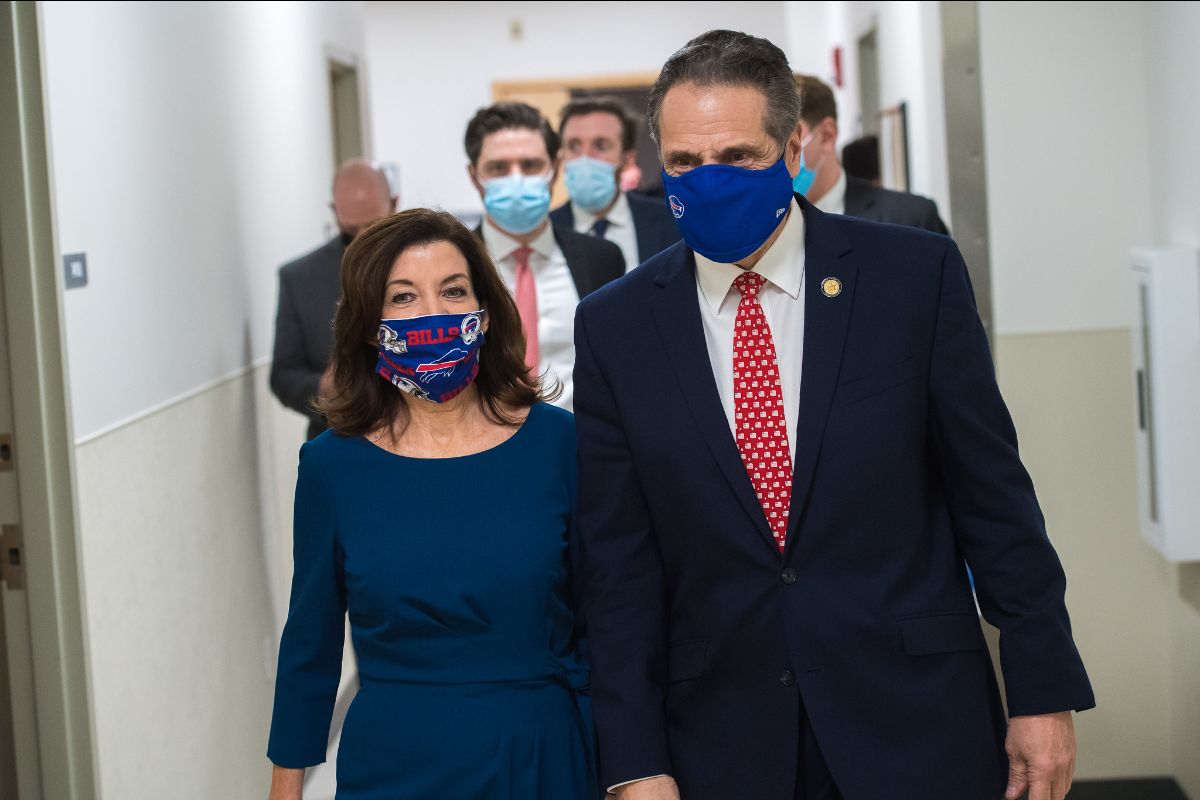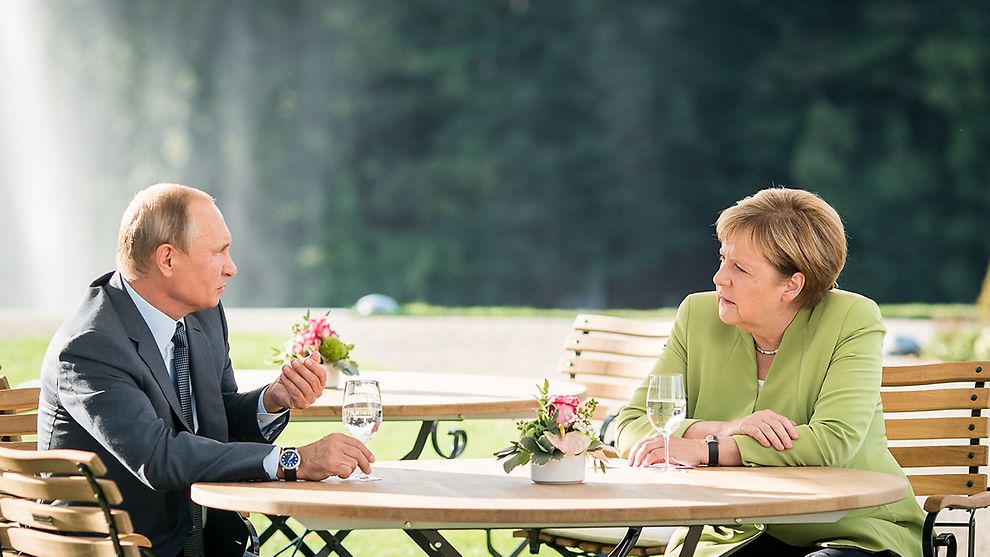Top Photo: Russian President Vladimir Putin and German Chancellor Angela Merkel meet in Meseberg, Germany, in August 2018. (Photo: Bundesregierung / Kugler)
Welcome to Factal Forecast, a look at the week’s biggest stories and what they mean from the editors at Factal. We publish our forward-looking note each Thursday to help you get a jump-start on the week ahead. If this email was forwarded to you, and you like what you see, you can subscribe for free.
A look ahead:
Aug. 20/ Merkel to meet with Putin in Moscow: German Chancellor Angela Merkel will travel to Moscow to hold talks with Russian President Vladimir Putin on Friday before heading to Ukraine on Sunday.
- What’s happened so far: This will be Merkel’s first visit to the Russian capital since January 2020. The meeting comes amid strained relations between Russia and other European leaders. Merkel has been vocal about the importance of meeting face-to-face with Putin, arguing that talking directly is most productive. The meeting comes just days before the scheduled completion of the Nord Stream 2 pipeline, which will pump natural gas from Russia to Western Europe and is expected to double Russian natural-gas supplies to Germany. The United States opposed the pipeline but reached an agreement with Germany to jointly support Ukraine, which will likely be deprived of gas-transport fees when the pipeline is operational. The two nations also pledged to confront Russia if it uses energy to apply political pressure.
- The impact: The meeting likely won’t do much to thaw frosty relations between Putin and the rest of Europe, but it could help address some regional issues. The world leaders are likely to discuss the situation in Afghanistan. Merkel is nearing the end of her fourth term as chancellor and will step down after elections Sept. 26.
Aug. 20/ San Francisco vaccine mandate goes into effect: Patrons at restaurants, bars, clubs and gyms in San Francisco, as well as attendees of large events at indoor venues, will be required to show proof of full coronavirus vaccination starting Friday.
- What’s happened so far: San Francisco will be at least the third major U.S. city to tie activities like indoor dining and workouts to vaccination status, following similar mandates in New York City and New Orleans, but is the first to require full vaccination for entry. Though most of the country is grappling with rising coronavirus case figures due to the spread of the Delta variant, San Francisco has avoided a similar spike in hospitalizations due to its high vaccination rate. While the new requirement goes into effect for customers this week, staff have until Oct. 13 to reach full vaccination status.
- The impact: Vaccination mandates are likely to become more prevalent in the coming months as an increasing number of venues and promoters, including live entertainment behemoths Live Nation and AEG, roll out their own requirements.

Aug. 21/ U.S. restrictions at Canada and Mexico border set to expire: The closure of U.S. land borders with Mexico and Canada to non-essential travel is set to expire Saturday.
- What’s happened so far: Land and ferry crossings to the United States have been restricted since March 2020, with the Department of Homeland Security extending the closure by 30 day increments since in an effort to the spread of coronavirus. Still, people have been allowed to fly into the United States since January, but need to show a negative coronavirus test before departure. Canada opened its borders to fully vaccinated Americans earlier this month.
- The impact: If the border restrictions aren’t extended again, it will likely mean relief for many border communities that have been hurt by the impacts on business. However, opening the borders will almost certainly draw some criticism, considering the United States is in the midst of a coronavirus surge with several states seeing record increases in cases.

(Photo: White House / Lawrence Jackson)
Aug. 22/ VP Harris travels to Asia: U.S.Vice President Kamala Harris will travel to Singapore on Sunday to visit allies and show support for the U.S. Indo-Pacific strategy. She will then go on to visit Vietnam, where she is expected to promote an “America is back” message.
- What’s happened so far: This is the second foreign trip for Harris, coming after her visit to Mexico and Guatemala that was centered around building strategies to stem migration through the U.S. border. This trip marks a departure from border security and is instead likely to focus on recovery from the ongoing coronavirus pandemic, regional security and climate change ahead of the COP26 summit.
- The impact: Harris is expected to reiterate the United States’ commitment to the region, in an effort to contain the growing global influence of China. The trip comes days after Defense Secretary Lloyd Austin’s Southeast Asia tour and is the first visit by a senior elected official since the United States pulled out from Afghanistan.
Aug. 24/ Tokyo Paralympics opening ceremony: With the Tokyo Olympics wrapped, the Paralympics are set to begin next Tuesday with no spectators, as Tokyo’s metropolitan area extends its state of emergency over an ongoing surge of coronavirus cases.
- What’s happened so far: TheOlympics took place in Tokyo this summer after the coronavirus pandemic delayed the Games for a year, ending last week. The games came as cases continued to surge in Japan, reaching record highs across the country. More than 500 people involved with the Olympics have tested positive for the virus since July 1. Meanwhile, approximately 36 percent of the population in Japan is fully vaccinated.
- The impact: Olympic organizers managed to keep the rate of coronavirus infections among people involved with the games relatively low, but the Paralympics will face Japan’s largest wave of cases among the local population so far. Japan extended its state of emergency until Sept. 12, past the end date of the games, and the country added seven more prefectures to the measure, bringing the total to 13.

(Photo: Darren McGee / Office of Governor Andrew M. Cuomo)
Aug. 24/ New York Gov. Cuomo steps down: New York Gov. Andrew Cuomo will leave office Tuesday after an investigation by the state’s attorney general accused him of sexually harassing at least 11 women.
- What’s happened so far: A months-long inquiry released by the New York Attorney General alleged Cuomo engaged in “unwelcome and nonconsensual touching” and made “numerous offensive comments” to at least 11 women, including nine state employees. Cuomo initially resisted leaving office, but resigned after his top aide resigned and the New York State Assembly began preparing for impeachment proceedings. The governor denied the allegations yet took “full responsibility” for his actions, adding his decision to step down was motivated by a desire to ensure the state remained able to deal with the coronavirus pandemic.
- The impact: Cuomo’s fall from grace ends a decade-long tenure as governor during which he was praised for his stable leadership, particularly during the coronavirus pandemic. President Joe Biden described the accusations and Cuomo’s subsequent resignation as “so sad,” adding the governor had “done a helluva job” on infrastructure and voting rights. Lt. Gov. Kathy Hochul will assume his role, becoming the state’s first-ever female governor. Cuomo remains under criminal investigation by at least two New York state district attorneys in relation to the allegations, but he no longer faces impeachment proceedings. The State Assembly will issue its own report on the allegations.
Aug. 25/ Biden holds talks on cybersecurity: President Biden and his national security team will meet with business executives about state-sponsored hacking Wednesday.
- What’s happened so far: Ransomware attacks and data breaches have wreaked havoc on several companies — and the U.S. government — over the past year. Media outlets reported in December that Russian hackers had access to several branches of the federal government dating back several months using an exploit in SolarWinds software. Russia denied its involvement. In March, it became known that a separate exploit, this one of Microsoft Exchange, led to hackers having full access to thousands of servers, affecting companies worldwide. Microsoft accused Chinese-backed hackers, though China called those accusations “groundless.” Hackers also recently targeted a massive fuel pipeline and the world’s largest meat-processing company. Biden has taken a tougher stance on these cyberattacks, telling Russian President Putin last month to do more to crack down on them.
- The impact: Cybersecurity is mostly up to each individual company, but the Biden administration wants more public-private cooperation to put up a better defense. It’s unclear if the companies will go that far, though, because it could lose them business in the Chinese market.

What else matters:
Afghanistan conflict: Twenty years of U.S. occupation in Afghanistan came to an abrupt end this week, plunging Afghanistan into an uncertain future under Taliban leadership. The hardline Islamist militant group retook power by force this month from an American-backed government and military crumbled in a matter of days. President Biden, though asserting he stands “squarely behind” his decision to withdraw American troops, placed blame for the collapse on Afghan security forces, saying they lacked the will to fight.
- Watch for: The situation continues to unfold rapidly in the landlocked Central Asian nation, though mostly in a peaceful manner since the Taliban captured the capital Kabul on Aug. 15. The group is sending messages on a daily basis claiming it has changed into a more tolerant entity than the 1990s version of itself that banned women’s education or work, shut down free press and adopted public beheadings for capital crimes. Taliban spokesmen have spoken of accepting more women’s’ rights, the possibility of forming a “unity government” and establishing “positive relations” with other countries. In contrast with the American withdrawal and embassy evacuation, Russia and China are keeping their missions open, issuing carefully worded statements about possible cooperation.
Thailand protests: Demonstrations erupted over the weekend in Bangkok with Sunday marking the fourth time in a week that protesters marched toward the residence of Thai Prime Minister Prayuth Chan-ocha. Thai police countered with teargas and water cannons as the demonstrations over the country’s lackluster vaccination rates intensified amid souring coronavirus cases in the Southeast Asian nation.
- Watch for: Opposition parties in Thailand’s parliament moved Monday to file motions of no-confidence against the prime minister and five other ministers due to the government’s mishandling of the pandemic and vaccine rollout. The vote will mark the third censure debate of Prayuth’s tenure. While the demonstrations were triggered by Thailand’s inability to curb its worst-ever coronavirus outbreak, they are situated within broader discontent about Thailand’s political status quo. Protesters could broaden their calls for constitutional reform as well as the most contentious and sensitive demand: reform of the powerful monarchy.
Poland media law: The lower chamber of the Polish parliament passed a media ownership bill earlier this month that threatens the survival of the last independent media outlet in the country by banning non-EU companies from owning domestic outlets. The measure could directly translate into U.S.-based Discovery being forced to sell its ownership of Polish TV network TVN, whose news channel has featured critical views against the country’s ultra-conservative government. The Senate still needs to pass the bill by an absolute majority on a final vote. The bill so far has sparked nationwide protests, as the opposition saw the maneuver as a means to silence critical views. Both the EU and the United States have expressed deep concerns about the bill’s impact on free speech and democracy.
- Watch for: The passing of this bill could cost the Polish government its own survival and a drastic turn in the quality of its relations with the United States. The Polish prime minister fired his deputy over his opposition to the project, which could in turn lead the Law and Justice party to face a vote of confidence. The White House also warned Poland that their trade, business and defense agreements could be negatively impacted by the move. Discovery threatened to sue the Polish state.
Extended outlook: What’s on our radar in the coming weeks
Aug. 20: Germany’s Merkel meets with Russia’s Putin; San Francisco vaccine mandate comes into effect; U.S. restrictions at Canada and Mexico border set to expire; Abu Dhabi to only allow vaccinated people in some public spaces; NATO holds extraordinary meeting on Afghanistan
Aug. 21: NYC Homecoming concert
Aug. 22: VP Kamala Harris arrives in Singapore
Aug. 23: U.S. House returns from recess early
Aug. 24: New York Gov. Cuomo steps down; Tokyo Paralympics begin
Aug. 25: Biden holds talks on cybersecurity
Aug. 26: Biden meets with Israeli PM at White House
Sept. 1: Singapore to ban domestic elephant ivory trade
Sept. 5: Hong Kong legislative election
Sept. 10: First game of 2021 NFL season
Sept. 11: 20th anniversary of September 11 attacks
Sept. 12: Pope Francis visits Budapest, Hungary
Sept. 13: Norway parliamentary election
Sept. 14: California gubernatorial recall election; Boston mayoral primary
Sept. 19: 73rd Primetime Emmy Awards; Russian legislative elections
Sept. 20: Canada snap election; U.S. to begin offering third coronavirus vaccine shots
Sept. 21: 76th UN General Assembly
Sept. 25: Icelandic parliamentary elections
Sept. 26: Haitian elections; German federal elections

